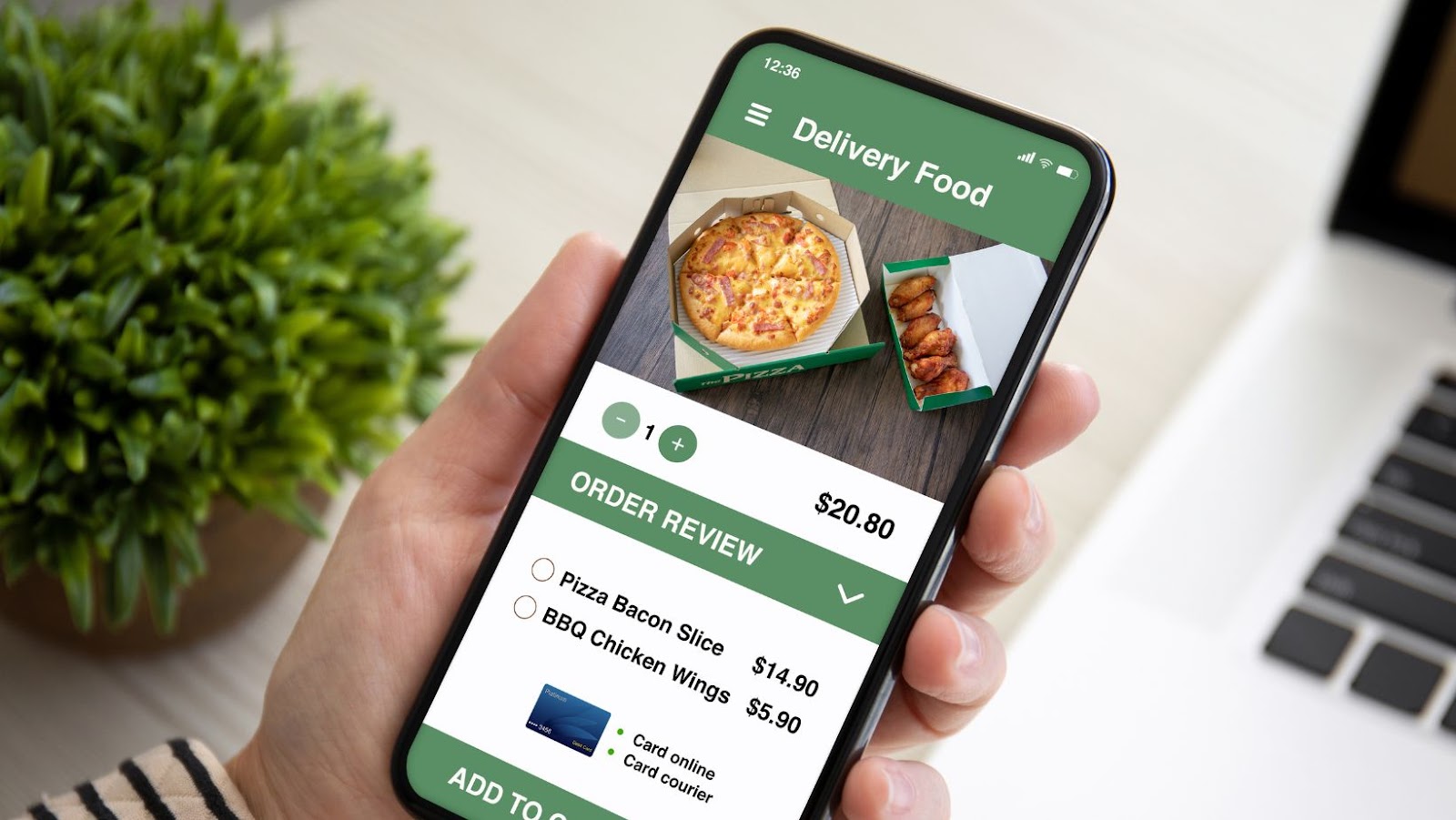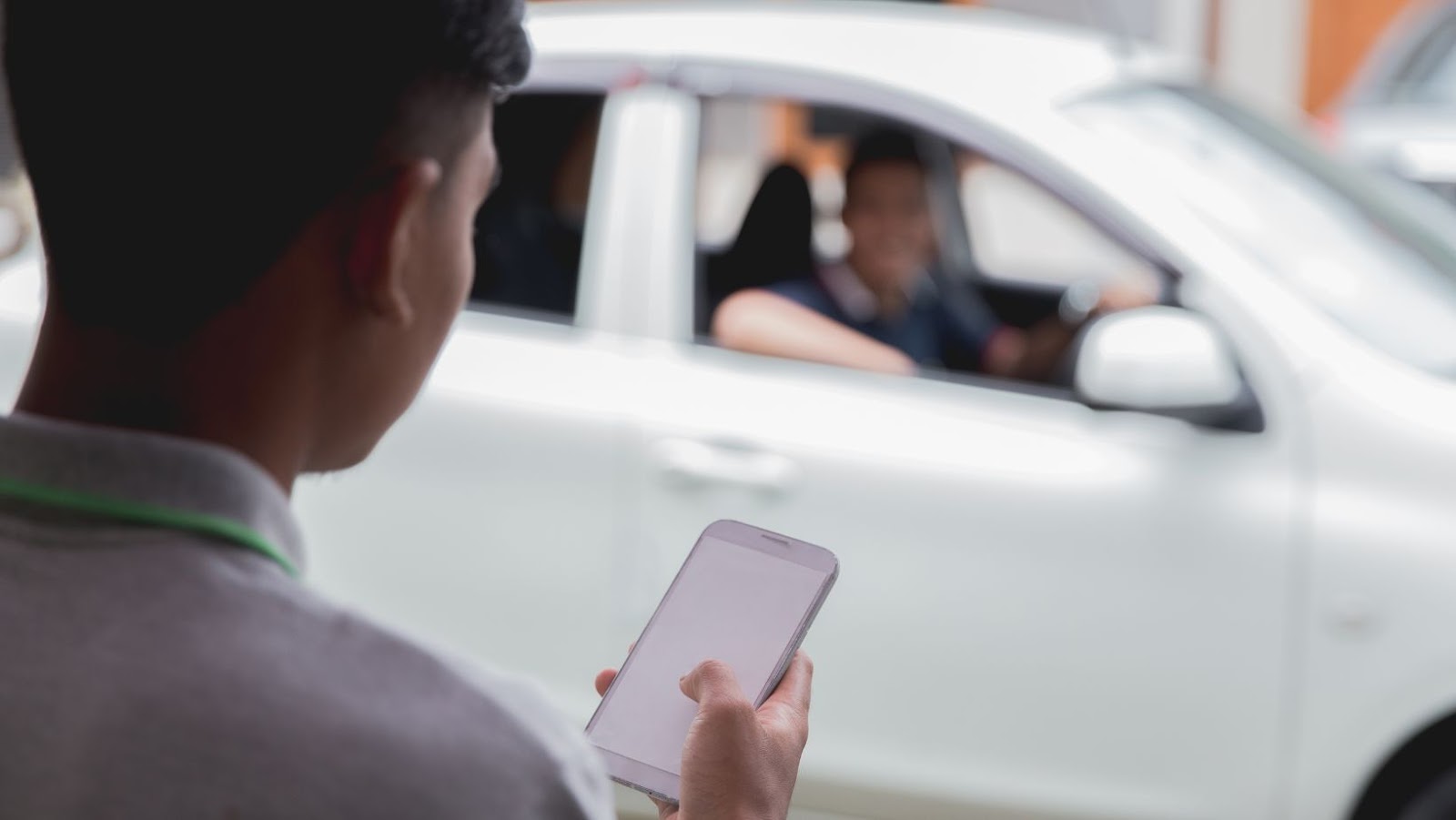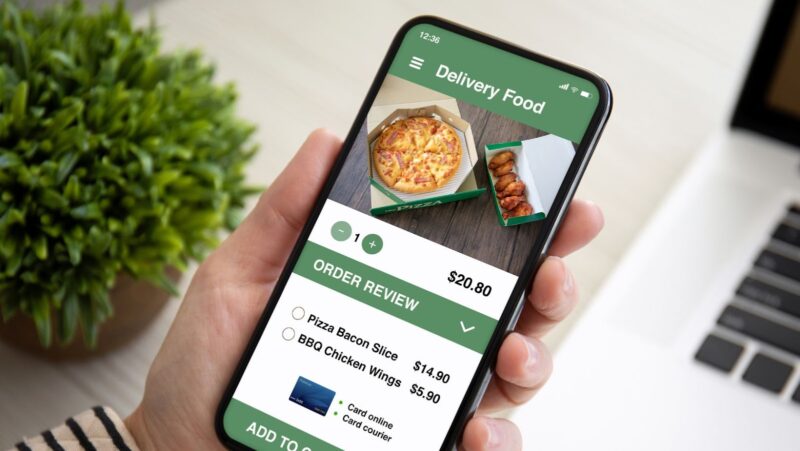
The food delivery industry has exploded in recent years, with more and more apps and companies taking a slice of the market. Companies like Uber and Postmates are two of the most popular choices for consumers to have their meals delivered.
Recently, news broke that Uber reportedly offered to buy out Postmates to consolidate its hold on the market. To understand the impact of this merger, we must first look at the current landscape of the food delivery industry.
Market size and growth
The food delivery industry has seen a tremendous market size and growth surge over the past few years. In 2018, the US food delivery industry grew by 23%, double the growth seen in 2017, to reach a value of $20 billion according to Statista. The primary drivers of this growth have been convenience, ease-of-use, and expansion of the services area offerings.
The market’s current size is expected to continue its steady growth, reaching an estimated $36 billion by 2023 with a compound annual growth rate (CAGR) of 13%. The primary contributors to this market are takeout and pickup services, delivery-only restaurants and other point-of-sale (POS) or food ordering sites or apps that offer delivery services or partner with third parties.
Recent news reports suggest that Uber Technologies Inc. could be looking to acquire its rival Postmates Inc., which could greatly reshape the competitive landscape in the food delivery space. This potential merger has gained further attention due to Uber’s ambitions for its UberEats platform, with many analysts believing it could make a concerted push for market leadership in terms of both customer numbers and order volume. If this does occur, it would undoubtedly affect customer spending patterns within the industry as well as competition between other players within it.
Major players in the market
The food delivery market is an ever-evolving industry with several major players. Popular on-demand platforms offer restaurant-style meals, meal kit companies that send ready-to-cook ingredients to subscribers, and grocery delivery services that allow customers to receive their groceries without leaving their homes.
Uber is one of the largest companies in the food delivery sector thanks to its acquisition of several smaller players, including UberEats. Over the past couple of years, Uber has been actively expanding its presence by launching new services in various global markets. Additionally, Uber recently announced an offer for Postmates which would make it a major contender in the on-demand delivery segment if successful.
Established digital ordering platforms such as OrderUp and Seamless are major players in this industry. Unlike UberEats, these companies focus more on restaurant deliveries than offsite catering orders but still have significant market shares worldwide. In addition, delivery Hero and Grubhub have become household names in many countries and help offer digital ordering services for restaurants including ChowNow, DoorDash and Doordashbiz which offer online catering solutions and regular deliveries.
Meal prep firms aim to make healthy eating easier by providing convenience meal solutions such as prepped ingredients that can be cooked quickly at home or pre-made full meals delivered straight to customers’ doorstep. HelloFresh has become one of the most recognizable meal box companies leading this innovation offering easy recipes alongside organic ingredients with no waste options available too; while Plated serves up product focused boxes designed for those looking for restaurant dining experiences at home without all the fuss and stress of shopping regularly each week.

Grocery delivery services such as Instacart are vital outfitters for busy consumers who seek grocery supermarket items without leaving their homes – often avoiding hordes at traditional stores during peak season but paying a convenience fee for custom orders placed either same day or for specified time slots like Amazon Prime Now or Walmart Delivery complimenting retail giants’ overwhelming presence just about everywhere now too!
Uber reportedly offers to buy out Postmates
Reports are circulating that Uber has offered to purchase Postmates to expand their reach in the food delivery industry. If this deal goes through, it would be a major shake up in the industry, creating a massive company worth billions of dollars.
In this article, we’ll look at the potential impact of the Uber-Postmates merger on the food delivery industry.
If an Uber-Postmates merger were to take place, it could potentially increase market share for the combined company. Once the two companies merge, they would become a dominant force in the food delivery industry with a substantial market share. According to reports, Uber currently has a 39% share of the US food delivery market, while Postmates has 8%. So together they could potentially control 47% of the US food delivery market.
This increased market share would allow them to increase their bargaining power with restaurants and suppliers while also providing consumers with more options.
The increased reach and control within the industry may also lead to higher prices for consumers as they would be able to charge premium rates due to their collective size and position within the food delivery space. As well as higher charges for restaurants since Uber-Postmates would have more power to set prices for its services. Additionally, competition between other companies operating in this space might decline due to an inability to match prices or provide better services than Uber-Postmates’ combined offering.
Impact on customer choice
The news that Uber is reportedly in talks to acquire its long-time rival Postmates has generated much buzz within the food delivery industry. It is expected that an Uber-Postmates merger could have a considerable impact on customer choice, as the two companies are now the largest players in the sector.
If a deal is struck, the combined market share of Uber Eats and Postmates would be estimated to be around 25%, versus their respective 15% and 10% before the merger. This would leave little room for smaller players, as customers increasingly flock to these two corporate giants for their takeaway needs.
In addition to a reduced variety of app options, customers may also find that restaurants available through each service become limited as competitive pricing strategies come into play. Unfortunately for users, there’s a concern that higher prices may accompany an Uber-Postmates merger due to market power wielded by the two companies over restaurant owners. In addition, it’s been reported that some restaurants already pay up to 30% commission on each completed order – a significant expense incurred with no tangible benefits.

Though there’s no denying an Uber-Postmates acquisition could bring practical advantages such as improved customer loyalty rewards and better overall integration, concerns remain regarding increased customer costs and reduced variety of food choices along with other possible implications still being discussed by industry experts.
Impact on competition and pricing
An Uber-Postmates merger would give the newly combined company a significant share of the U.S. food delivery market – and lead to less competition and potentially higher consumer prices. As a result, small businesses may see reduced options, while larger companies may see their power as suppliers increase, enabling them to negotiate higher prices with the delivery services.
The merger would also affect competition among food delivery platforms such as DoorDash, Grubhub and other smaller apps, which could find it harder to compete against the much larger combined Uber-Postmates entity. In addition, the deal could open the door for further consolidation in the space, as smaller players struggle to scale up their businesses in a highly competitive market.
The proposed merger could also affect current agreements between restaurants and delivery companies. Uber has already been pushing its way into exclusive deals between restaurants and delivery companies – including an agreement between McDonald’s and Postmates – to build out its restaurant network more quickly than it otherwise would be able to do. As a result, the combined company may be able to exert even greater pressure on restaurants when negotiating these kinds of agreements in future – further reducing competition in the industry.
Ultimately, only time will tell how a potential merger between two of the largest players in food delivery will affect customers, restaurant owners and other stakeholders – but, likely, any transaction would significantly reshape the competitive landscape of this rapidly growing sector.
Regulatory Implications
Reports of Uber offering to buy out Postmates have been circulating for some time, raising questions about the potential merger’s impact on the food delivery industry. A major concern is the associated regulatory implications and what it could mean for the market.
To gain an understanding of the possible consequences of such a merger, it is important to consider both the current regulations governing the food delivery industry and how a merger could affect the market:
- Current regulations governing the food delivery industry
- How a merger could affect the market
Potential antitrust issues
An Uber-Postmates merger would create the undisputed leader in food delivery. This kind of market dominance results in several potential antitrust issues for regulators to examine, two of which would be how it affects competition and consumer choice.
The merger would lead to higher consumer prices due to a lack of competition. Still, it could also lead to fewer options and reduced service quality as the merged company would have little incentive to meet new customer demands or innovate.
Competition from other meal delivery providers could be limited due to the merger, resulting in less price competition and fewer options available to customers. Many organisations, including the Federal Trade Commission (FTC), are trying to prevent this idea of monopolising an industry sector. The FTC typically reviews proposed mergers to ensure that it does not form a monopoly, reduce competition or harm consumers in any way before approving them.

Additionally, antitrust law bans “tying arrangements” whereby companies condition customers into purchasing additional services that they wouldn’t purchase if there was competitive pressure on price points or service offerings. As such, regulators will need to evaluate whether Uber-Postmates’ practices limit competitive pricing alternatives or force customers into purchasing bundled services from either Uber or Postmates under their newly formed corporate entity – violations of this kind can draw heavy penalties from government agencies.
Potential for government intervention
If Uber were to acquire Postmates, the newly-formed company would quickly become one of the largest players in the food delivery market. This could raise concerns from competition regulators interested in preventing monopolies that might limit consumer choice or reduce market prices for goods and services.
In the U.S., the antitrust laws exist to protect competition within an industry by preventing certain actions from occurring. In this case, it could mean limiting an Uber-Postmates merger by implementing conditions or prohibiting certain business practices upon merger approval and ensuring each company continues to compete independently post-merger. Other markets worldwide may have similar regulations and interests in determining whether a proposed deal would harm healthy competition within a sector.
Any decision regarding a potential Uber-Postmates merger will depend on several factors, including regulatory implications and customer reaction. In any such situation, governments should consider the impact of a merger on both customers and competitors before making any definitive judgments or decisions about the proposed deal.
Impact on Small Businesses
Recently, it was reported that Uber had offered to buy out the food delivery service Postmates. If the merger were to take place, it would greatly impact small businesses in the food delivery industry. In addition, it could result in major implications for smaller players who are already under pressure due to the increasing dominance of giants like Uber, DoorDash, and Grubhub.
In this article, we will discuss the potential effects of this merger on small businesses in the food delivery industry:
Potential for job losses
The potential merger of ride-hailing giant Uber and the food delivery service Postmates could spell severe job losses for small businesses. The merger has been subject to much speculation, with reports that Uber has offered to acquire Postmates for a reported $2.6 billion sum. Should this deal go through, it would mean that the two services will be combined in a massive merger and reshape the delivery market significantly.
Not only would the merger create a huge disruption in the current delivery landscape – it could also lead to job losses from small businesses. As both companies have similar pricing structures, they are likely to continue competing on costs, which could result in one entity having to trim operations and ultimately reducing headcounts. Many of these employees are likely to be hired by temporary ‘gig’ workers or contractors – an arrangement that offers little or no benefits and employment security. Furthermore, should such a scenario come into effect, small businesses that rely heavily on personnel may find themselves at a competitive disadvantage as they seek replacements who can maintain their deliverability standards.
In addition, over time we can expect consolidation of services into one platform/entertainment provider with access to both rides and deliveries through one single order button, abolishing smaller businesses even further as short term contracts become more prevalent with fewer permanent roles available. Until we have more clarity on this issue it is difficult to predict the full extent of how logistics markets could be impacted. Still, there is certainly potential for job losses from local businesses if such a deal goes forward.
Potential for decreased competition
The potential merger between Uber and Postmates could have several consequences for small businesses. This might include fewer options for customers in terms of food delivery services, which could hurt small businesses that rely on third-party delivery companies.
The most obvious consequence of an Uber-Postmates merger is the potential for decreased competition in the food delivery industry. Not only would there be less service options for customers to choose from, but the monopoly means smaller competitors would likely be unable to keep up with their larger rivals in terms of pricing and quality control. This could lead to fewer orders, resulting in decreased revenue and profits for local businesses.
In addition to physical competition, Uber and Postmates’ combined digital reach also gives them a larger advantage over small business competitors that lack online presence or resources. For example, both companies already use sophisticated machine learning algorithms as part of their operations – something that independent restaurants or businesses are unlikely to be able to replicate on their own without significant support. This provides Uber/Postmates with greater bargaining power when negotiating terms with individual restaurants or suppliers, potentially allowing them to drive down costs further at the expense of small competitors’ profit margins.
Finally, it’s worth noting that consolidation within the industry has negative implications beyond just competition: Local businesses often benefit from partnerships and collaborations between providers like Postmates and restaurants. If these relationships are weakened by an increased focus on large corporate control in the space (as may very well be the case if an Uber-Postmates merger were to take place), this could have further negative consequences for already vulnerable small business owners throughout the country.
Impact on prices
A merger between Uber and Postmates may greatly impact prices within the food delivery industry, with small businesses potentially being most affected. In a competitive market, merger discussions could lead to increased pricing for customers and workers and could force smaller businesses out of the market.
First, it is important to consider how a merger would affect labour costs. Currently, independent contractors making deliveries for Postmates often receive higher payment than those working for UberEats, which could be changed in the event of a merger. This means customers are more likely to spend more money when ordering delivery through an Uber-Postmates partnership than through separate companies. In addition, as workers compete for fewer jobs in a tighter market created by the merger, wages may be driven down by an increased number of applicants or by reduced competition among employers.
Second, consolidation and fewer available options for suppliers may lead to higher consumer prices and reduced profits for small business owners selling food items through delivery services. Third, as sharing of customer data becomes increasingly prevalent in an Uber-Postmates partnership setting, larger firms can target specific consumer groups willing (or forced) to pay higher prices. This unfair advantage can quickly drive out smaller players in the industry.
In conclusion, while there is little hard evidence at this stage on what would happen if a deal went ahead between Uber and Postmates, it is clear that small businesses within the food delivery sector are likely to bear the brunt of any increases in pricing post-merger. Consolidation of two major players in the industry into one entity presents significant risks not just at cost but also on competition – risk which small businesses cannot bear alone – warranting close attention from both policymakers and interested citizens alike throughout any process leading up to completion of such a significant transaction within our economy’s rapidly changing landscape.
Potential scenarios for the future
The news of a possible Uber-Postmates merger comes amidst an already disruptive and rapidly evolving food delivery landscape. The industry’s future will depend on how the competing services decide to move forward regarding their strategic partnerships and acquisitions.
Below, we examine some potential scenarios for the industry should Uber acquire Postmates:
- Uber could emerge as a formidable market leader. Since Postmates works with a variety of large and small restaurants, Uber would have access to a much larger network of ordering options. With this added reach, many predict Uber could become the go-to service for food delivery.
- If no deal is reached between Postmates and Uber and competition continues to increase, most players may struggle to stay afloat as uncertainty prevails. Some speculate that consolidation among smaller, regional services may be necessary for survival as companies look for ways to optimise costs and gain market share against bigger rivals such as DoorDash and Grubhub.
- Others have speculated that pressure from new competitors like Amazon could cause incumbents to merge or partner to maintain their competitive edge through increased scale or shared resources. This would result in fewer consumer choices and potentially more streamlined ordering experiences across platforms.
- Finally, some anticipate that whichever business combinations or mergers occur within the food delivery space won’t make things too different at first glance – most companies will still offer similar models of services including pickup or delivery-only options depending on location. Consumer trends suggest this could be more advantageous than radical changes as customers appreciate consistency while ordering online or using apps more regularly these days.
tags = mobility as a service, ride-hailing, food delivery, package delivery, couriers, and freight transportation, uper app for ios, uber app for android, postmates logistics comoany, local delivery of restaurant-prepared meals and other goods, deliveroo europeclark wall streetjournal, deliveroo europeclark streetjournal, under deliveroo streetjournal, under deliveroo wall streetjournal, deliveroo wall streetjournal, deliveroo londondeighton streetjournal, deliveroo londondeighton wall streetjournal, deliveroo streetjournal, uber acquired food delivery company postmates, uber eats food service, uber attempted to buy grubhub













